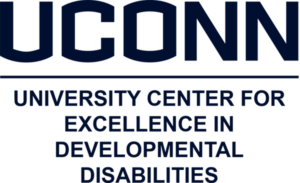BeSpoke™ Voices for Millions Who Cannot Speak

VocaliD Launches First Personalized Digital Voices for Assistive Devices Company.
BELMONT, Mass/PRNewswire/ — VocaliD, Inc., a speech technology company that creates personalized digital voices for those living with voicelessness, launched its online BeSpoke™ voice studio. The announcement was made at the Biennial Conference of the International Society for Augmentative and Alternative Communication (ISAAC) in Toronto.
Supported by the National Science Foundation and the National Institutes of Health, VocaliD’s innovation is based on a discovery by Founder and CEO Dr. Rupal Patel and her colleagues that even a single vowel contains enough “vocal DNA” to seed the voice personalization process.
The BeSpoke™ process captures a recipient’s unique vocal identity and blends it with recordings from a healthy speaker — matched by gender, age and accent — within the company’s Voicebank of 14,000+ contributors. This blended voice is then used in the recipient’s electronic communications device — creating a BeSpoke™ voice.
“The inspiration for VocaliD came when I saw a young girl and older man communicating using their assistive devices but with the exact same adult male voice,” said Dr. Patel, a professor at Northeastern University. “We wouldn’t dream of fitting a little girl with the prosthetic limb of a grown man, so why then the same prosthetic voice?”
More than ten million globally are unable to speak and rely on assistive devices with a limited selection of generic, synthetic voices. VocaliD’s vision is to provide affordable, personalized and natural-sounding voices for the voiceless.
For David Manzo, president of the Lexington, MA-based Cotting School for students with special needs, VocaliD is “breaking down barriers for children with complex challenges to communication.”
“I’m observing first-hand the communication and self-esteem benefits of VocaliD’s technological breakthrough on our students,” said Manzo, recalling for one student: “First I heard her voice and then I saw the smile on her face. Thanks to VocaliD she has both her own voice and a new found confidence and pride.”
Sridhar Tayur, Ford Distinguished Research Professor at Carnegie Mellon University, who serves on VocaliD’s advisory board, said, “the discovery of a person’s ‘vocal DNA’ combined with a crowdsourced Human Voicebank and development of 21st Century hyper-scalable digital synthesis algorithms is a trifecta.”
The company is also exploring similar personalization for the rapidly increasing number of everyday devices currently narrated by generic voices.
Learn more at www.vocalid.co.

